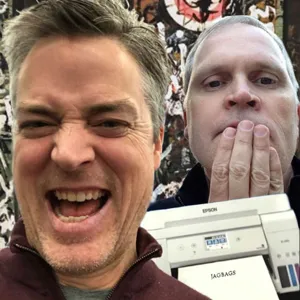Author Neal Karlen, in conversation with Sam Bleazard.
Introduction - New York Times, Rolling Stone magazine, author...friend?
1-3mins: "Please don't let my scoop go away!" - Memories from another lifetime...and the BBC Omnibus documentary
4mins ...time to stop writing - and talking about - Prince, wanting to be a fan again and not a critic...
7mins - MPLS, segregation and the 'Minneapolis Sound'
9mins30s - Prince as an 11-year-old kid, and a story from one of his substitute teachers
11mins30s - Was Prince's life a sad story or a triumphant story of success?
13mins30s - 'This Thing Called Life' - were you worried that by being so candid it would create a backlash on the book?
17mins - the audiobook, the showman and Prince off the record in the 1980s
19mins - small aspects of the real guy being revealed: showing the imperfect human being behind the star.
20mins30s - "I Love U..."? And how it feels...
22mins30s - Humour in the book and 'The Crusher'!
24mins30s - The dilemma of releasing tapes of Prince speaking from the 1980s...'the most compartmentalised person I've ever met'
27mins - "Prince who?" - "The real Prince!"
29mins - The only person still awake at 4am and happy to shoot the breeze...
30mins30s - Different personalities and the blurring between friendship and employment
33mins - Not deifying Prince...and his relationship with his mother and father
49mins - the last conversation with Prince (3 weeks before his passing)
50mins - any things you wished you'd put in the book?
How Can U Just Leave Me Standing? In Search of Prince... is produced and arranged by Sam J. Bleazard - but couldn't exist without the fabulous contribution from all of our guests!
The show also features significant original music compositions from Gavin Calder.
LINKS
Please follow me on Instagram and Facebook if you'd like to interact with the show on social media.
Email me at: bleazas@hotmail.com if you have any ideas for future episodes, or if you'd like to share any feedback on the show.
#prince4ever #love4oneanother















